By Claudia Dias
A baking pan full of dreams filled with vanilla cream and a basket of creamy chicken pies is enough to change someone’s life.
The statement may sound utopian or, at least, exaggerated, but that’s exactly what happened to Palmirinha, the charismatic grandma cook and presenter who died this Sunday (7) in São Paulo.
She had been hospitalized at the Paulista Unit of the Oswaldo Cruz German Hospital since April 11.
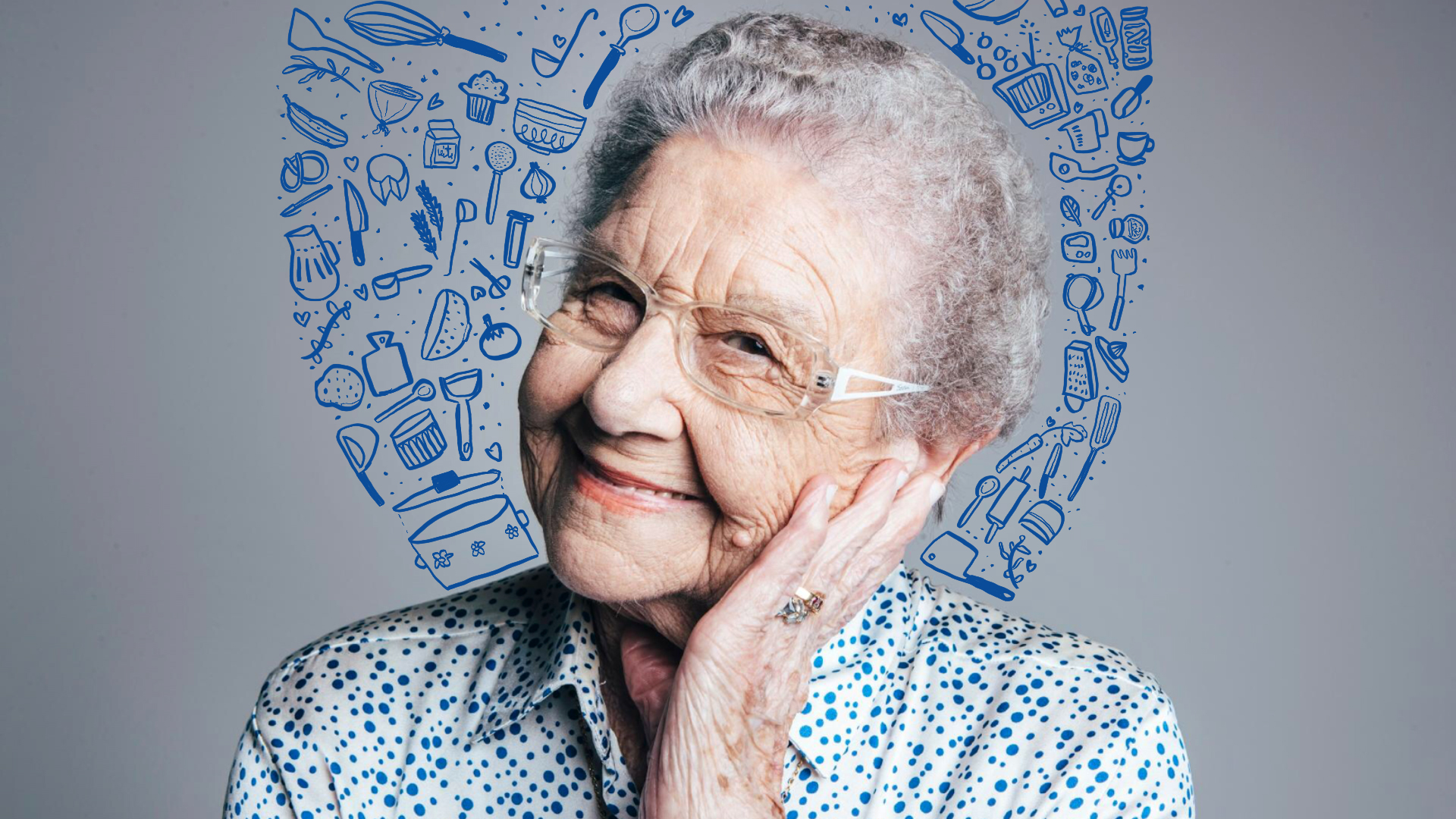
She died due to worsening chronic kidney problems, according to a statement from the family.
It is goodbye to the most beloved grandmother in Brazil, who has turned pans into a source of income for over five decades.
She overcame a difficult life thanks to food and fulfilled all her wishes and projects.
“The kitchen can change lives. If Palmirinha was able to do it, imagine if you can’t, my little friend?” she said in an interview with Nossa/UOL in 2020 – the other testimonials you will read in this report are from that interview we did with her on her 89th birthday.
The focus of her work of almost 30 years on television has always been to teach people simple, practical, and yet delicious recipes that can be prepared and marketed to bolster the budget, inspired by her personal experience.
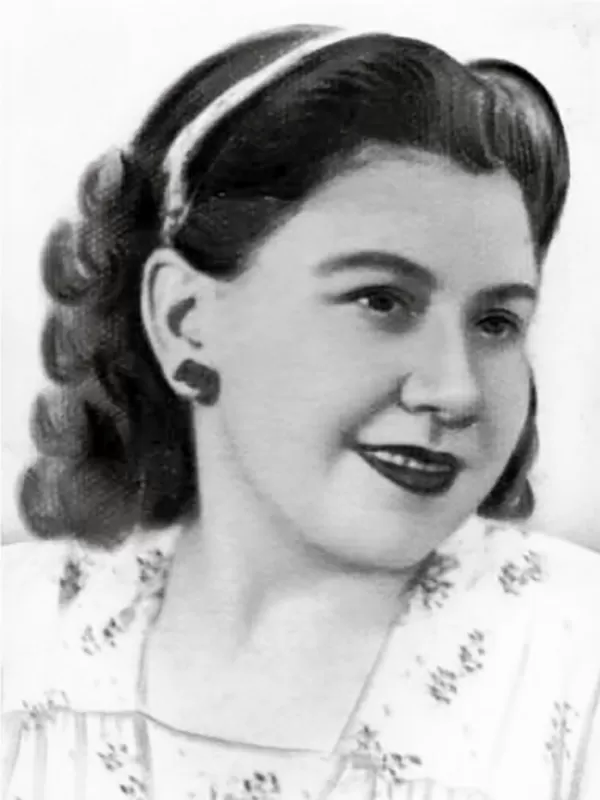
AT 5, ALREADY IN THE KITCHEN
Baptized Palmira Nery da Silva Onofre, she was born on a farm in Bauru, in the interior of São Paulo state.
Her mother, Anna, was an Italian immigrant, and her father, Felipe Nery, was from Bahia.
Palmirinha spent the first phase of her childhood in a rural area with her four siblings.
Before long, the family moved to the city, where her parents opened the first hotel in Bauru.
It was in the inn’s kitchen that Palmirinha had her first contact with cooking, at the age of 5, helping her mother to prepare meats, even though she had to climb on stools to reach the large pans.
About a year later, the little girl’s life changed.
When a French woman invited him to take her to São Paulo, the father saw the opportunity for a better life for his daughter in the capital.
With this lady, Georgette, Palmirinha learned more about cooking, including sophisticated dishes.
“She taught me several recipes she used to make in France, like béchamel cream and even condensed milk pudding, which I didn’t know”, she revealed.
The classic dessert, by the way, was the first dish she prepared by herself.
After her father’s death, Palmirinha returned to Bauru to work and help raise her siblings.
She was 14 years old at the time.
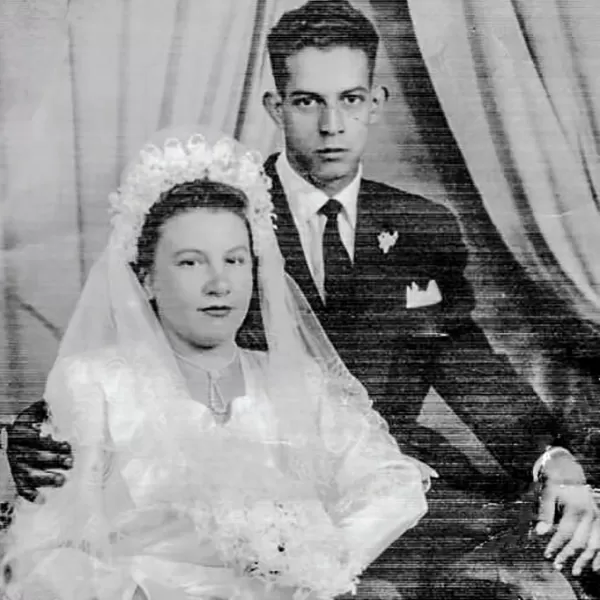
DOUGHNUTS TO BUY A UNIFORM
Still in the interior of the state of São Paulo, she married Mário Onofre, father of her three daughters – Tânia, Sandra, and Nancy – when she was 19.
He had a mechanical workshop and, at some point, ended up losing everything.
With the girls along for the ride, they moved to the capital – in the small town, Palmirinha would be frowned upon if she started working.
In São Paulo, she faced the most different kinds of service: she worked in factories, cleaned, prepared coffee, cleaned offices downtown, washed cars, and polished shoes, among other activities.
Earning money with food was not planned, but a one-time necessity: buying school uniforms.
Until then, the girls attended classes at different times, alternating uniform use.
In 1965, when Palmirinha was 35 years old, two daughters started to study in the same shift.
There was no uniform for both.
After a month, the school demanded that another jacket be provided, or one would no longer be able to attend classes.
Palmirinha didn’t think twice: she borrowed money from a friend to buy the clothes.
The following weekend, she decided to prepare ‘sonhos’ (dreams) doughnuts to sell in the neighborhood.
“I used a sweet bread recipe that my mother used to make on the farm, which was our panettone.”
The detail: she didn’t know how to prepare the pastry cream, so she bought a semi-ready pudding for the filling.
She made 30 ‘sonhos’, put them in a baking pan, and knocked door to door in Vila Mariana, where she has always lived.
She sold everything in 10 minutes, returned home, and fried another batch, which ended soon.
The next day she could repay the borrowed money, encouraging her to reinforce her budget with food.
She started to prepare snacks on the weekends, which were left for sale at Hilda’s hairdresser’s salon – where she went until the last years of her life.
Her friend also took notes of new orders.
PIES OF FAME
Palmirinha’s “debut” on TV was by chance, and it didn’t happen immediately.
Among the countless jobs she took to support the house and help her daughters, she also cooked for influential people before and after her separation.
Among them was a director of the presenter Silvia Poppovic, who had a program on Band TV at the time.
As Palmirinha was very talkative, the director asked if she would agree to participate in the edition addressing the topic “I raised my children alone.”
As a kindness, the then 62-year-old cook accepted and brought a basket full of pies to give to the hostess.
Silvia Poppovic thought the attitude was so touching that she decided to tell on TV that Palmirinha worked with food, giving out her phone number.
It was a success: orders skyrocketed.
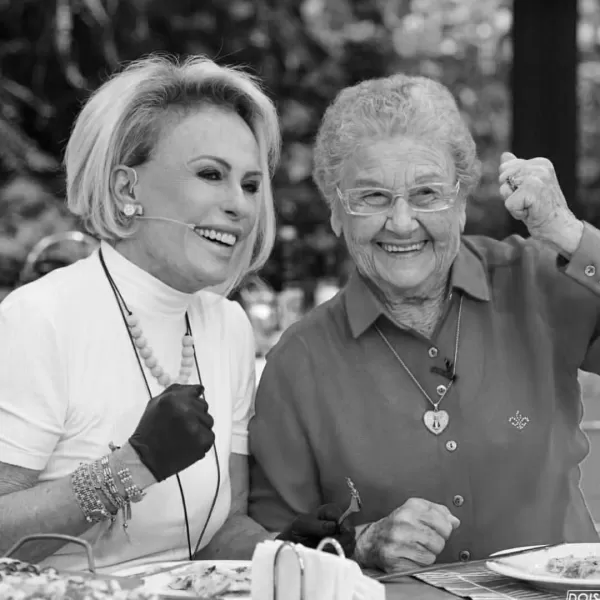
WAKE UP, LITTLE GIRL!
It was not only the customers who were enchanted by the story of this nice, sweet-spoken lady who revealed herself as a giant warrior within her 1.5 meters of height.
Because of her resourcefulness in front of the cameras, she was sought out by Ana Maria Braga’s team, at that moment, hired by Rede Record.
The cook was to participate in the program “Note e Anote” (Note and Write down).
Everything went so well that Palmirinha remained a collaborator of the program for five years.
Curiosity: Ana Maria Braga gave Palmirinha her stage name since Grandma used to call her Aninha.
In 1999, an offer came up at Gazeta TV, where the cook worked for 11 years, collaborating on “Mulheres” (Women) and “Pra Você” (To You) until she got her show, TV Culinária (Cooking TV), which she hosted until 2010.
“my little friends” was born there, a phrase automatically linked to the presenter.
“When I joined Gazeta, I couldn’t remember the names of all the women, so I called them my little friends.”
“But the men and young people started complaining.”
Then I started calling them ‘my little friends’ as well, and they are my passion to this day,” she told Nossa in 2020.
In 2012, the presenter returned to the small screen at the head of “Programa da Palmirinha” on Fox Life, where she stayed until 2015.
GOOD FOOD IS TRIVIAL
Forget sophisticated menus or dishes that you can’t even imagine what ingredients were used to prepare.
Palmirinha liked trivial, everyday food.
Rice and beans, roasted meat, a beautiful macaroni, beef with onions, and ‘polenta mole’ [cooked corn meal] with well-seasoned chicken led the ranking of her preferences at the table.
She used to prepare these dishes with a certain frequency and preferred to cook “with tomato sauce, without the industrialized ones”.
‘Brajolinha’ (beef stuffed with bacon, onions, carrots, and peppers) is another dish in her kitchen.
She also liked cooking stuffed meatloaf, just like her mother had taught: turning it brown and cutting it into slices.
“And as a leftover, you can use it to make a snack”, she said.
As a good Italian, the cook grandma also liked to prepare the dough – from farm bread and ham stuffed bread to the cornmeal cake she learned from her mother.
“WHO DOESN’T LIKE A COMPLIMENT?”
Palmirinha was fulfilled when she heard a “How delicious!” after a bite of the dishes she had prepared.
“Who doesn’t like to get a compliment, right?” she would say.
She was even more facetious if the applause came from one of her six grandchildren or five great-grandchildren.
“I’m delighted when they tastefully eat what I cook,” revealed Nossa.
When she received special requests from her grandchildren, she would rush to fulfill their wishes, be it a ‘brigadeiro’ cake (chocolate fudge with condensed milk), a ‘cocadinha’ (coconut sweet), or garlicky artichoke.
“I like to do everything for them. They are wonderful; they are my passion.”
The cooking skills, by the way, manifest themselves at various ends of the family.
Some nieces work with food in Paraná and Maranhão.
The oldest daughter, Tânia, has an emporium, and her granddaughter Adriana has embraced confectionery as a profession.
NOBODY AROUND
Despite her captivating profile that made everybody want to be Palmirinha’s grandchild, she didn’t like helpers by the stove.
She used to say: “I like to keep stirring, to keep putting the ingredients in, because if they go wrong, I was the one who made the mistake.”
One of the few exceptions she preferred to be served was when she wanted to eat ‘galinhada’ (chicken with rice mix dish).
This dish was her daughter’s specialty, always requested when Palmirinha missed something to eat.
“I am a fan of this wonderful audience that watches me, follows me, doesn’t abandon me, and has the greatest affection when they meet me in supermarkets, and malls, hug and kiss me. It’s just affection”.
PALMIRINHA, IN AN INTERVIEW WITH NOSSA IN 2020
“I am touched by the affection I receive.”
It is difficult to find a single interview of Palmirinha on the web in which she was not moved, remembering her difficult past or talking about the projects she has conquered and accomplished. She revealed to Nossa the reason why:
“I have always been emotional because I never had this affection I am receiving from people.”
“In all the programs I go to on television, it is that love, with that affection I never had. I have only had to suffer, so this affection makes me emotional, and I cry.”
The tears also appeared every time Ana Maria Braga’s name appeared in the conversation.
Palmirinha had a great affection for her: “She helped me win in life, taught me how to speak on TV, how to behave. I have a lot of passion and gratitude for her.”
FRIENDS AND DAUGHTER TELL WHICH RECIPES HAVE A SENTIMENTAL CONNECTION WITH GRANDMA

Ana Maria Braga, presenter
“I saw a lot of sweetness the first time I met Palmirinha, so I called her to cook the delicacies she knew on the show Note and Anote.”
“On the first day, she was very scared, but she learned quickly and became the phenomenon she is today.”
“The recipe that reminds me the most of her is the cameo, a walnut candy with an unforgettable fondant.”
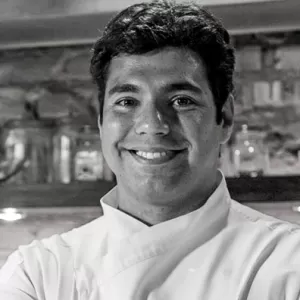
Felipe Bronze, chef, and presenter
“Palmirinha was the physical representation of the cuisine of a historical period, which is kept in our hearts”.
“The great dinners, the banquets, those delicious foods that we feel like biting into to feel the flavors of memories.”
“If I had to choose ONE dish representing it, it would be the cameo. It is elegant, intensely flavored, and vibrant.”
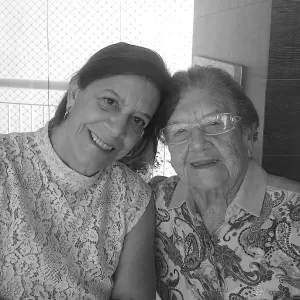
Sandra Bucci, Palmirinha’s daughter
“One of my dishes would be the gnocchi.”
“For me, it reminds me of a childhood time when on Sundays, we would sit at the table all together, me, my sisters, my mother, and my father.”
“Or sometimes a cousin would come to visit.”
“Everyone would eat, and it was delicious.”
With information from UOL

